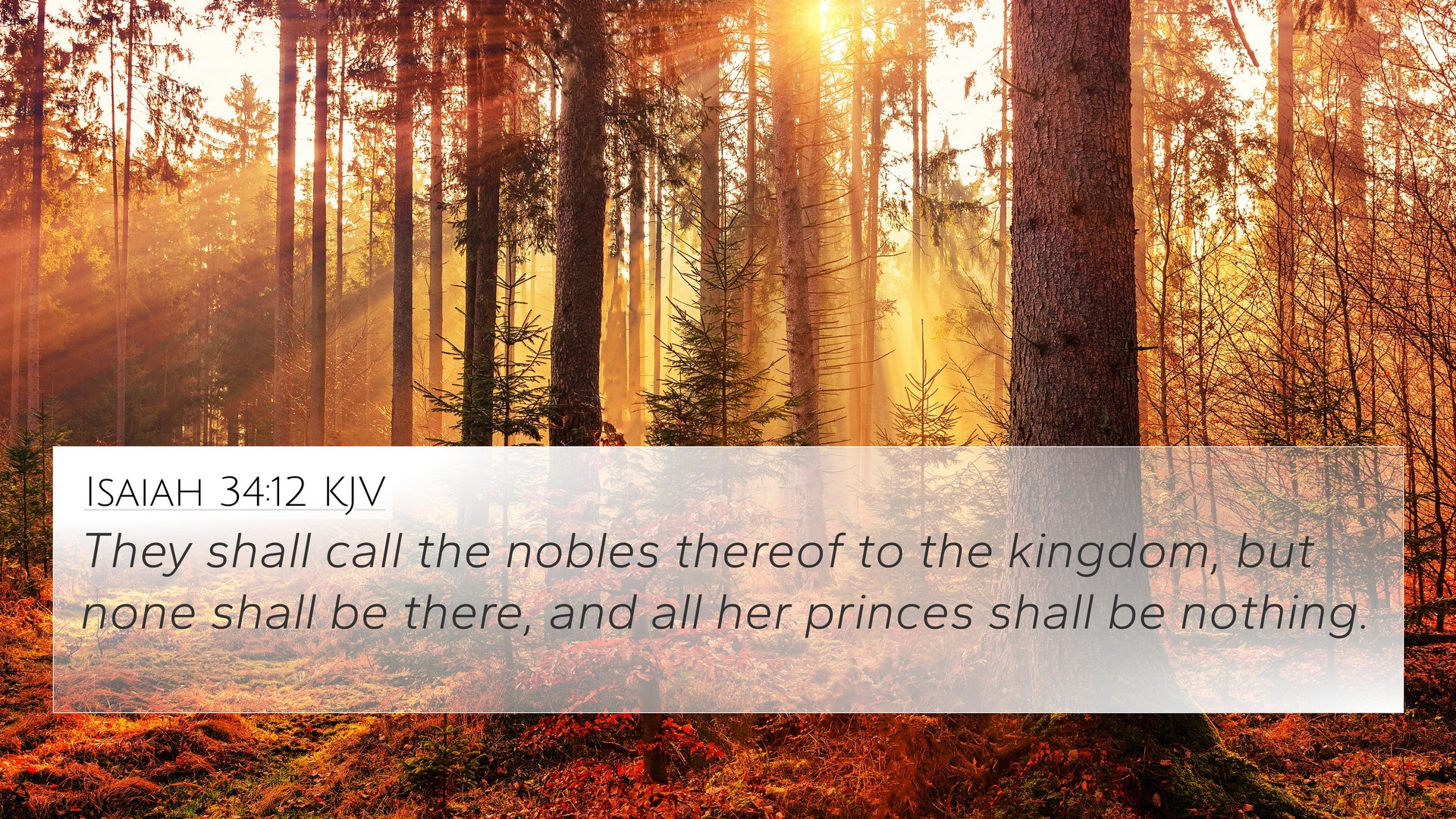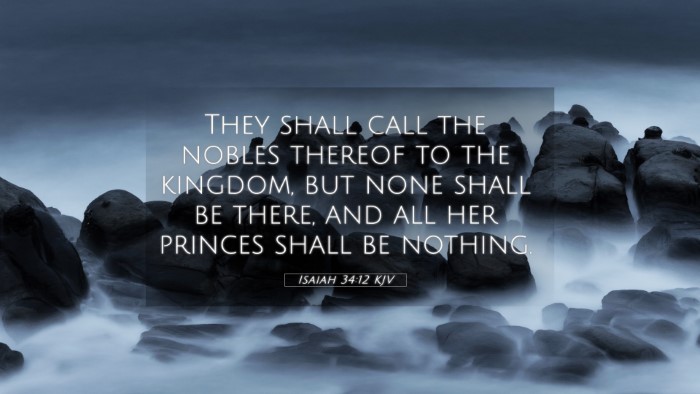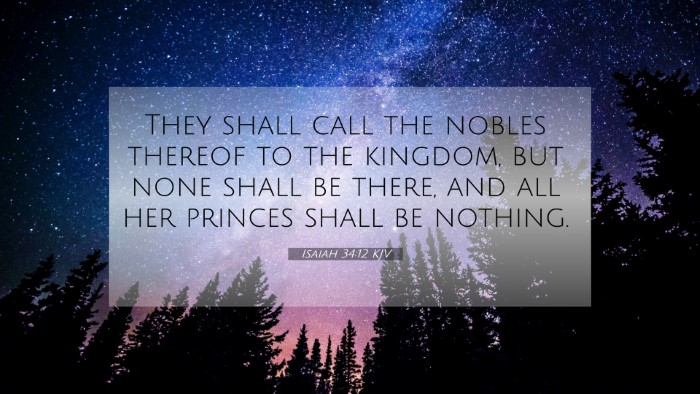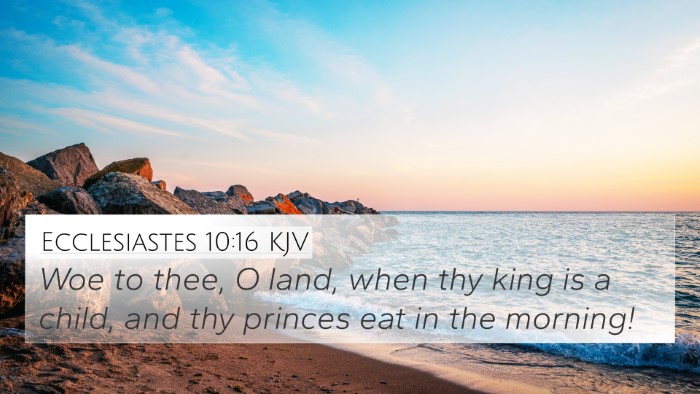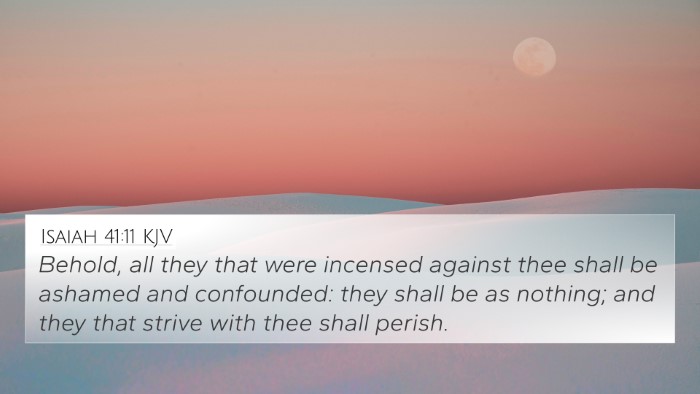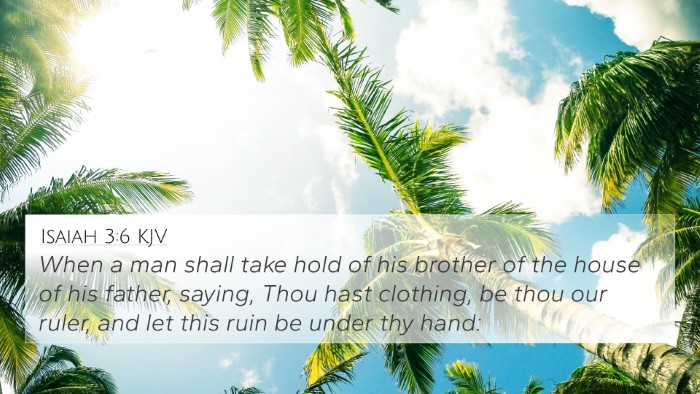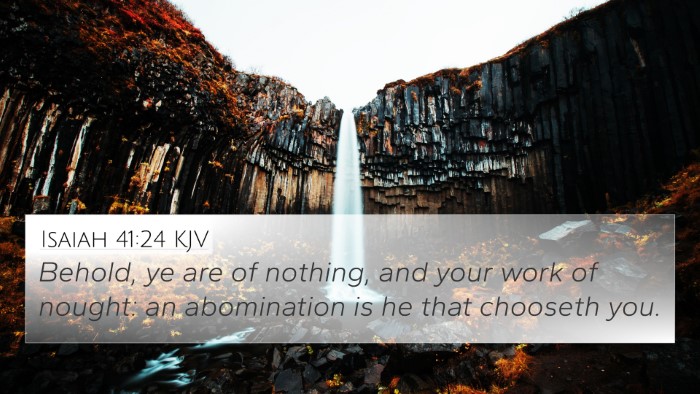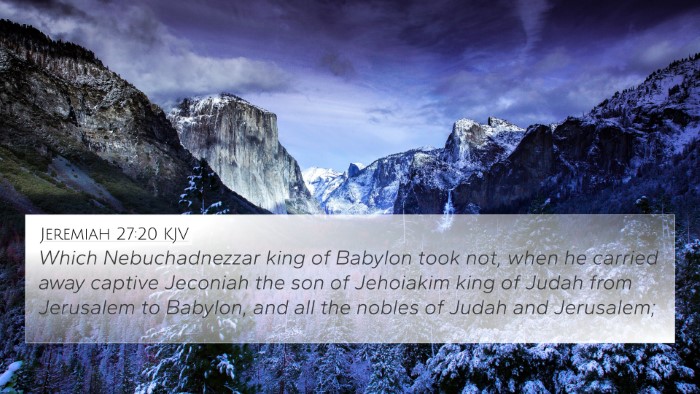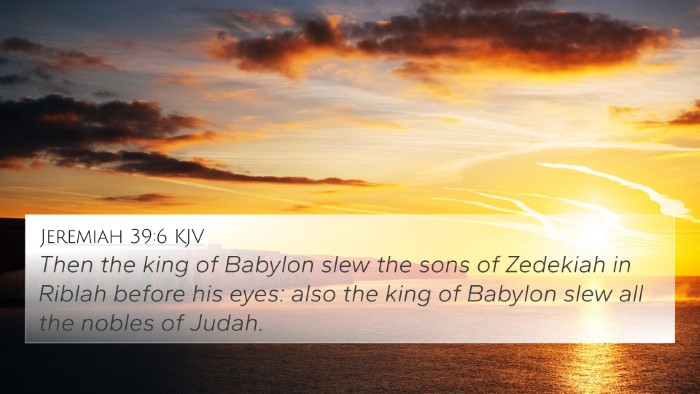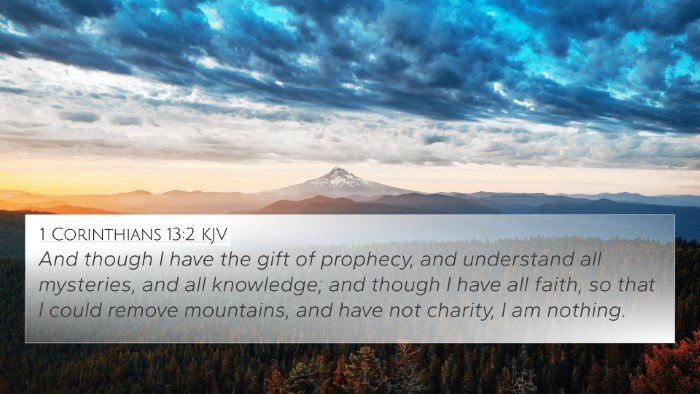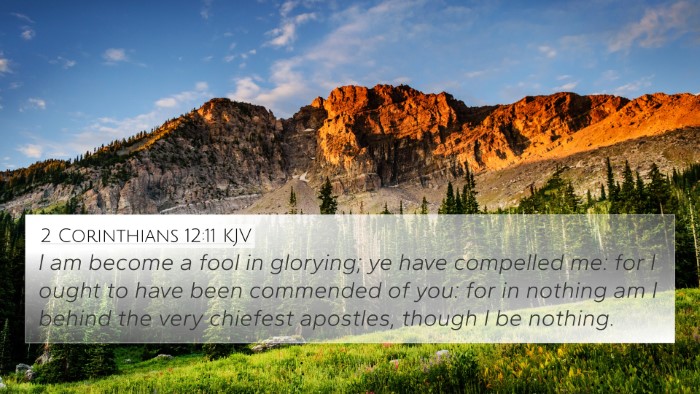Understanding Isaiah 34:12
Isaiah 34:12 states: "They shall call the nobles thereof to the kingdom, but none shall be there, and all her princes shall be nothing." This verse is a profound declaration about the desolation that will befall Edom, symbolizing a broader message of divine judgment.
Context and Overview
The chapter of Isaiah 34 serves as a prophetic warning and a vivid illustration of the impending judgment on nations opposed to God's covenant. It encompasses themes of devastation and the ultimate futility of human authority in the face of God’s will.
Commentary Insights
- Matthew Henry: Henry emphasizes that the absence of noble leaders signifies the complete breakdown of societal order in Edom. It reflects the emptiness of human glory once the judgment of God comes. The prophetic words illustrate that no one can stand in opposition against the divine decree.
- Albert Barnes: Barnes points out the certainty of God's judgment. The phrase "none shall be there" indicates not only physical absence but also the removal of power and influence. The lords and nobles who could have sought shelter from judgment are rendered powerless, reinforcing the idea that human efforts are worthless against God’s plans.
- Adam Clarke: Clarke expands on the desolation mentioned, indicating that Edom's former glory will be replaced with desolation due to God's righteous anger. He underscores the theme of divine justice, where the powerful are brought low in a moment, showcasing God’s sovereignty over all nations.
Thematic Connections
This verse invites an exploration of several biblical themes, including:
- Divine Judgment: The ultimate consequence of turning away from God and the certainty of divine retribution.
- Human Futility: The insignificance of human authority when contrasted with God's omnipotence.
- Desolation of Nations: The fate of nations that oppose God, seen throughout biblical history.
Cross-Referencing Related Verses
Isaiah 34:12 can be connected to various other scriptures that emphasize similar themes.
- Jeremiah 49:20-22: A clear depiction of the destruction of Edom.
- Ezekiel 35:3: God's prophetic word against Mount Seir, relating to the fate of Edom.
- Obadiah 1:2-9: A parallel message of judgment against Edom, highlighting its downfall.
- Revelation 18:2: This passage describes the fall of Babylon, a symbol of worldly power and the complete desolation that follows God’s judgment. This mirrors the fate of Edom.
- Isaiah 24:10: The city is desolate, a theme that reinforces the emptiness upon divine intervention.
- Psalm 9:17: A reminder that nations that forget God will be turned into hell.
- Isaiah 13:19: The fall of Babylon as an example of God dismantling leadership.
Inter-Biblical Dialogue
The connection between these verses illustrates the recurring biblical theme of God’s judgment on prideful nations and leaders:
- Isaiah 2:12: The day of the Lord against all that is proud and lofty.
- James 4:6: God gives grace to the humble but resists the proud, which resonates with the fall of Edom's nobility.
- 1 Peter 5:5: Humble yourselves, as God opposes the proud, further emphasizing the biblical principle that resonates through history.
Conclusion
Isaiah 34:12 is more than a historical account; it is a warning that reverberates through Scripture, highlighting the consequences of pride and rebellion against God. The insights from commentaries illustrate the divine judgment awaiting nations that forget God, urging readers to heed the lessons of such prophetic declarations.
